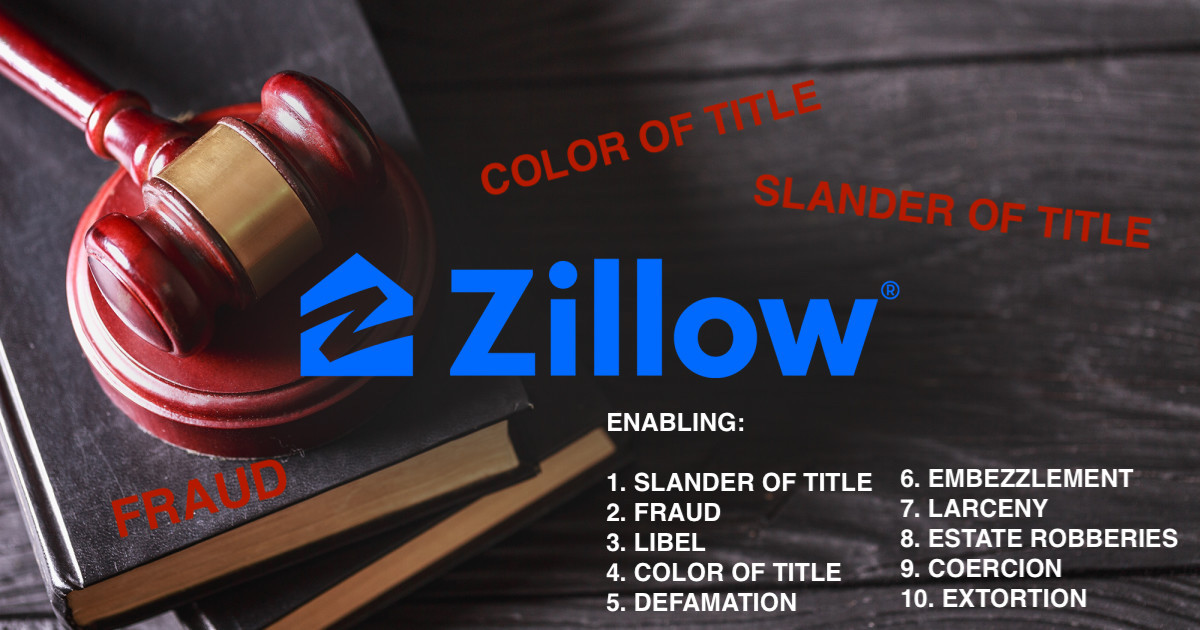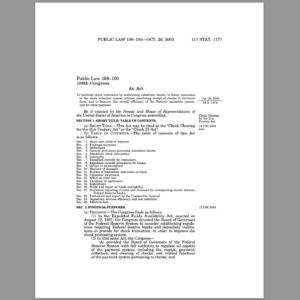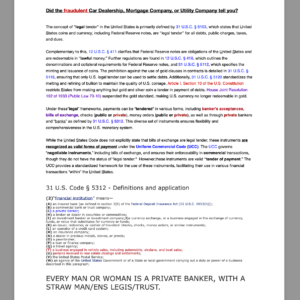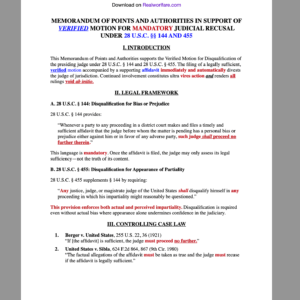Zillow, a leading online real estate marketplace, has become a household name for anyone seeking to buy, sell, or rent real estate/real property. However, a troubling, injurious, damaging, and treasonous aspect of Zillow’s operations is its reporting of properties in “pre-foreclosure” or “pending auction” status when, in fact, these properties are already titled in the name of a private non-statutory irrevocable trust, and not subject to any true foreclosure, and are obviously not even under the jurisdiction of the COUNTY RECORDER. While this may seem like an innocuous feature, it has profound implications for Americans, especially non-citizen nationals/nationals of the United States/internationally protected persons, and State Citizens, who are being adversely affected, injured, and damaged by these practices.
Understanding the Status of Non-Citizen Nationals and State Citizens:
Non-citizen nationals, State Citizens, and nationals of the United States are individuals who have a unique legal standing under U.S. law. Unlike typical U.S. citizens, these individuals reserve their rights under the Uniform Commercial Code (UCC) 1-308, which allows them to explicitly retain all rights and remedies, effectively preventing any unintended waiver of rights. Furthermore, these nationals are not merely subjects of the United States’ statutory laws but are also protected by a broader scope of constitutional and common law principles.
These nationals often operate outside the conventional economic system. Rather than contributing to the United States’ mounting debt, they discharge their debts dollar for dollar, as authorized by several key legal provisions:
1. House Joint Resolution 192 of June 5, 1933, Public Law 73-10:
This resolution effectively ended the gold standard and required the federal government to discharge all debts, public and private, dollar for dollar. HJR 192 expressly stipulates:
“every provision contained in or made with respect to any obligation which purports to give the obligee a right to require payment in gold or a particular kind of coin or currency, or in an amount in money of the United States measured thereby, is declared to be against public policy; and no such provision shall be contained in or made with respect to any obligation hereafter incurred. Every obligation, heretofore of hereafter incurred, whether or not any such provision is contained therein or made with respect thereto, shall be discharged upon payment, dollar for dollar, in any coin or currency which at the time of payment is legal tender for public and private debts.”
2. 12 USC § 411:
This statute pertains to the issuance and redemption of Federal Reserve Notes, highlighting the obligation of the federal government in discharging ALL debts, and is a codification of the Federal Reserve Act. 12 USC 6 explicitly stipulates:
“Federal reserve notes, to be issued at the discretion of the Board of Governors of the Federal Reserve System for the purpose of making advances to Federal reserve banks through the Federal reserve agents as hereinafter set forth and for no other purpose, are authorized. The said notes shall be obligations of the United States and shall be receivable by all national and member banks and Federal reserve banks and for all taxes, customs, and other public dues. They shall be redeemed in lawful money on demand at the Treasury Department of the United States, in the city of Washington, District of Columbia, or at any Federal Reserve bank.”
3. The Federal Reserve Act and The Gold Reserve Act of 1934:
These laws further reinforce the obligations of the federal government concerning monetary policy and the redemption of currency, which declared provisions known as “gold clauses” to be against public policy, prohibited their use in obligations thereafter incurred, and provided that money of the United States legal tender for obligations generally was legal tender for all obligations with or without gold clauses (ie: bills of exchange, bonds, private checks, vouchers, coupons, Dollars/FRNs, stamps, and more): and Whereas the United States has paid and will continue to pay to the holder of all its securities their principal and interest, dollar for dollar, in lawful money of the United States: Now, there, be it Resolved by the Senate and House of Representatives of the Untied States of America in Congress assembled, That the lawful holder of the coins or currencies of the United States shall be entitled to exchange them, dollar for dollar, for other coins or currencies which may be lawfully acquired and are legal tender for public and private debts: and that the owners of the gold clause receive immediate payment of the stated dollar amount thereof with interest to the date of payment or to prior maturity or to prior redemption date, whichever is earlier. The Secretary of the Treasury is authorized and directed to make such exchanges and payments upon presentation hereunder in the manner provided in regulations prescribed.
4. Public Law 73-87, Title III, Section 3 of the Gold Reserve Act of 1934:
This law clarifies the government’s responsibility in maintaining the value and redemption of its currency. Gold Reserve Act of 1934, Public Law 73-87, Title III, Section 3, stipulates:
“(a) every provision contained in or made with respect to any obligation which purports to give the obligee a right to require payment in gold or a particular kind of coin or currency of the United States, or in an amount in money of the United States measured thereby, is declared to be against public policy. (b) Every obligation, heretofore or hereafter incurred, shall be discharged upon payment, dollar for dollar, in any coin or currency which at the time of payment is legal tender for public and private debts”
5. 18 USC 8:
This statute defines the obligations or securities of the United States, including Federal Reserve Notes and bonds, further solidifying the discharge of debts. 18 USC § 8 stipulates:
“The term “obligation or other security of the United States” includes all bonds, certificates of indebtedness, national bank currency, Federal Reserve notes, Federal Reserve bank notes, coupons, United States notes, Treasury notes, gold certificates, silver certificates, fractional notes, certificates of deposit, bills, checks, or drafts for money, drawn by or upon authorized officers of the United States, stamps and other representatives of value, of whatever denomination, issued under any Act of Congress, and canceled United States stamps.”
6. House Joint Resolution 348, Public Resolution Number 63:
This resolution continues to support the principles established in HJR 192, further legitimizing the discharge of debts or public and private debts. It declared provisions known as “gold clauses” to be against public policy, prohibited their use in obligations thereafter incurred, and provided that money of the United States legal tender for obligations generally was legal tender for all obligations with or without gold clauses (ie: bills of exchange, bonds, private checks, vouchers, coupons, Dollars/FRNs, stamps, and more): and Whereas the United States has paid and will continue to pay to the holder of all its securities their principal and interest, dollar for dollar, in lawful money of the United States: Now, there, be it Resolved by the Senate and House of Representatives of the Untied States of America in Congress assembled, That the lawful holder of the coins or currencies of the United States shall be entitled to exchange them, dollar for dollar, for other coins or currencies which may be lawfully acquired and are legal tender for public and private debts: and that the owners of the gold clause receive immediate payment of the stated dollar amount thereof with interest to the date of payment or to prior maturity or to prior redemption date, whichever is earlier. The Secretary of the Treasury is authorized and directed to make such exchanges and payments upon presentation hereunder in the manner provided in regulations prescribed.
The Harmful, Injurious, Slanderous, Libelous, and Defamatory Impact of Zillow’s Practices:
Zillow’s reporting of properties as being in “pre-foreclosure” or “pending auction” status can lead to significant harm to nationals, including non-citizen nationals and State Citizens. The following are key areas where this harm is most evident:
1. Damage to Reputation and Creditworthiness:
When a property is listed as being in “pre-foreclosure” or “pending auction” status, it can significantly damage the reputation and creditworthiness of the property owner. For nationals who have reserved their rights under UCC 1-308, this can be particularly detrimental. Their legal standing is based on discharging debts rather than incurring them, and Zillow’s listings can falsely imply financial instability.
2. Increased Scrutiny and Legal Challenges:
Under the color of law and by way or fraud, extortion, coercion, conspiracy, and deprivation of rights under the color of law, a non-citizen/national whom reserves their rights under (see UCC 1-308) often face increased scrutiny from financial institutions and government entities. Zillow’s listings can exacerbate this scrutiny, leading to unnecessary legal challenges and complications in asserting their rights to discharge debts dollar for dollar.
3. Misrepresentation of Legal Status and Slander of Title:
Zillow’s listings do not take into account the unique legal status of nationals, including their ability to discharge debts rather than add to the national debt. This misrepresentation can lead to unwarranted foreclosure actions, even when the property owner is legally protected from such actions.
4. Contributing to the United States’ Debt Problem:
By falsely representing properties as being in “pre-foreclosure” or “pending auction,” Zillow indirectly contributes to the national debt. Nationals who discharge their debts dollar for dollar are inadvertently coerced, steered, and/or pushed into the conventional debt system, undermining their legal rights and obligations under House Joint Resolution 192 of June 5, 1933, other law, and even statutes.
The Need for Reform
Given the significant injury and harm caused by Zillow’s practices, it is imperative that reform is undertaken to protect the rights of non-citizen nationals/nationals/State Citizens/nationals of the United States/internationally protected persons.
Zillow should be required to accurately represent the legal status of property owners, particularly those who reserve their rights under UCC 1-308 and discharge debts in accordance with federal law, and those whom have “gone private” and do not have any existing contract(s) with the de facto government, and whom are proceeding In Propria Persona, sui juris.
Additionally, greater awareness and education are needed to ensure that all Americans understand their rights under these legal provisions and are not unduly harmed by inaccurate property listings, including being extorted, coerced, deprived under the color of law, having their identity stolen, their assets embezzled, and being forced into peonage.
In conclusion, while Zillow may serve as a useful tool for many, its practices regarding “pre-foreclosure” and “pending auction” listings can have serious repercussions for a specific group of Americans. It pulls its record from unreliable sources that do not operate with 100% integrity and whom make arbitrary and capricious decisions on what they record.
This mental warfare and blatantly fraudulent misrepresentation perpetuate the constant deprivation of rights under the color of law. By forcing private citizens to endure threats against their private property and slander against their title, these tactics even succeed in convincing some that exercising their rights is the wrong decision, further emphasizing the profound damage and injury caused by these practices.
It is essential that these practices be re-evaluated and reformed to protect the rights and legal standing of nationals who operate outside the conventional debt-based economic system.












